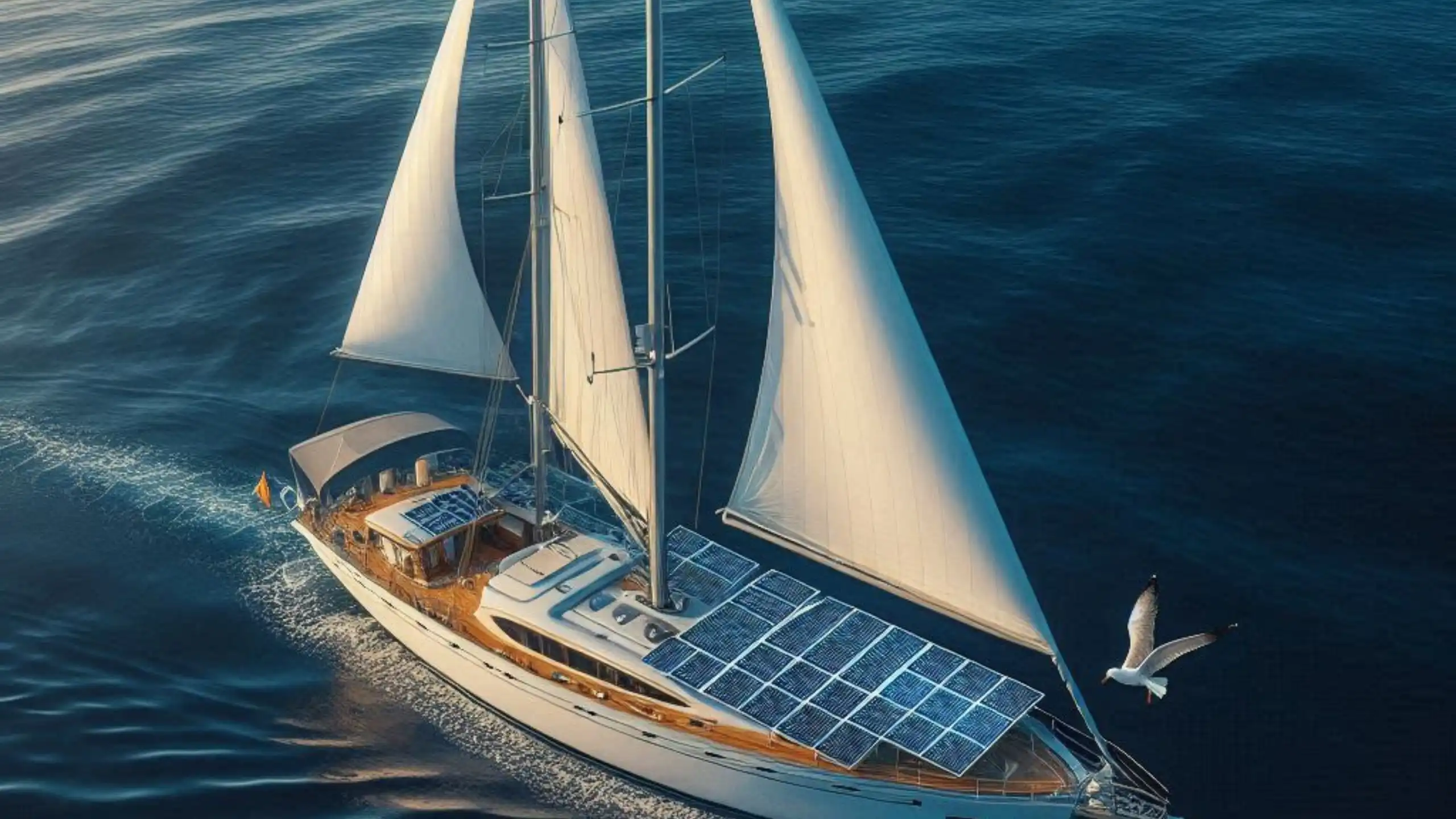In the age of renewable energy and sustainable living, Solar Panels for Your Boat have become an essential addition for boat enthusiasts looking to reduce their environmental footprint and enhance their on-board power systems. This comprehensive guide delves into the benefits, installation processes, and maintenance tips for Solar Panels for Your Boat, providing you with all the information you need to make an informed decision. Solar Gadget
In This Post
Why Choose Solar Panels for Your Boat?
1. Sustainable Energy Source
Solar Panels for Your Boat harness the power of the sun, providing a clean and renewable energy source. Unlike fossil fuels, solar energy does not emit harmful pollutants, making it an eco-friendly choice for powering your boat’s electrical systems.
2. Cost Efficiency
While the initial investment for Solar Panels for Your Boat can be significant, the long-term savings are substantial. Once installed, solar panels have minimal maintenance costs and can significantly reduce or even eliminate the need for fuel-powered generators.
3. Independence from Shore Power
With Solar Panels for Your Boat, you can enjoy greater freedom and independence. Solar energy allows you to venture further without worrying about finding shore power or fuel supplies, making long voyages more feasible and enjoyable.
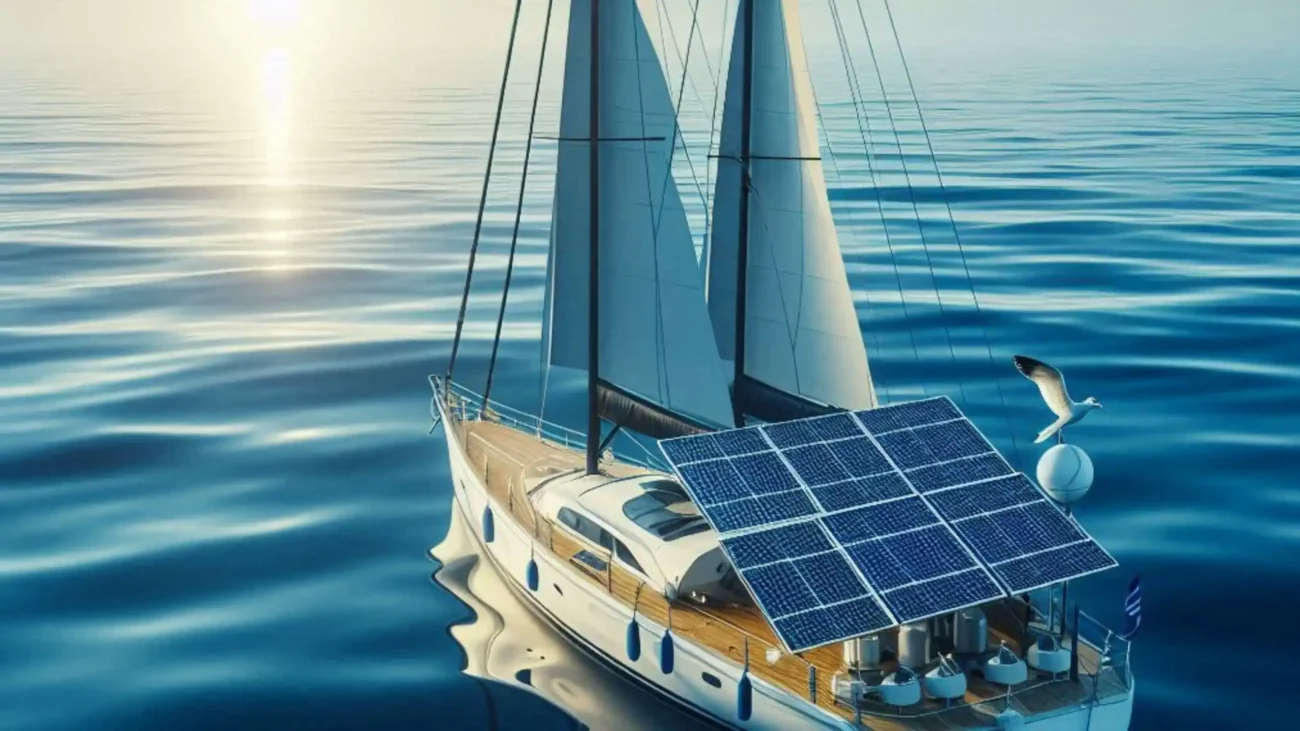
Types of Solar Panels for Your Boat
1. Monocrystalline Solar Panels
Monocrystalline panels are known for their high efficiency and durability. Made from single silicon crystals, these panels are typically more expensive but provide the best performance in limited spaces, making them ideal for boats.
2. Polycrystalline Solar Panels
Polycrystalline panels are made from multiple silicon crystals and are generally less expensive than monocrystalline panels. They offer good efficiency but require slightly more space, making them a popular choice for larger boats. Solar Gadget Reviews
3. Thin-Film Solar Panels
Thin-film panels are flexible and lightweight, making them suitable for various surfaces on a boat. While they are less efficient compared to crystalline Solar Panels for Your Boat, their versatility and ease of installation make them a viable option for many boat owners.
Installation of Solar Panels on Boats
1. Assessing Energy Needs
Before installing Solar Panels for Your Boat, it’s crucial to assess your energy requirements. Calculate the total wattage needed by summing up the energy consumption of all onboard devices and systems. This helps in determining the number and type of solar panels required.
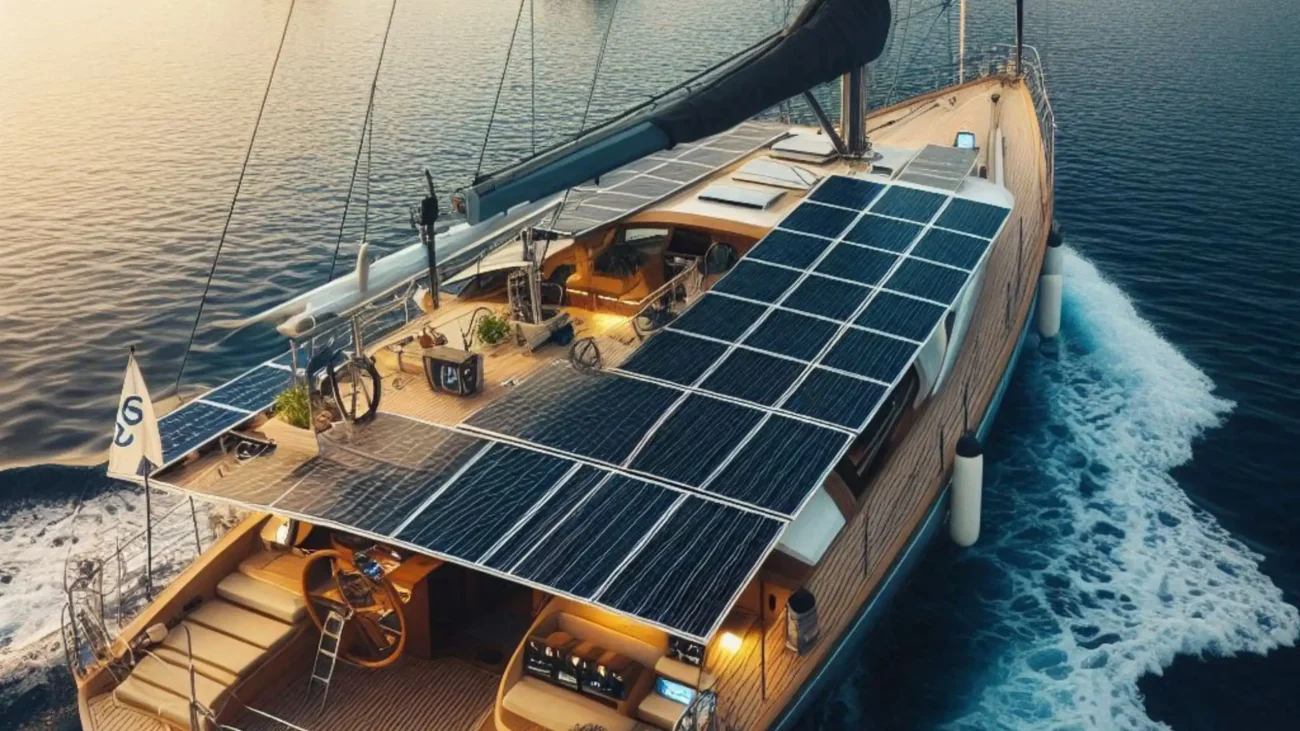
2. Choosing the Right Location
Selecting the optimal location for Solar Panels for Your Boat installation is essential for maximizing energy absorption. Panels should be placed in areas with minimal shading, such as the deck, cabin roof, or bimini tops. Consider using adjustable mounts to optimize the angle of the panels towards the sun. Blog
3. Mounting Options
There are several mounting options available for solar panels on boats, including:
- Fixed Mounts: These provide a sturdy and permanent solution but may not always face the optimal direction.
- Adjustable Mounts: Allow panels to be tilted and rotated for maximum sun exposure.
- Flexible Mounts: Suitable for curved surfaces and areas with limited space.
4. Wiring and Connectivity
Proper wiring is critical for efficient energy transfer. Use marine-grade wiring to withstand harsh marine environments. Connect the panels to a charge controller to regulate the voltage and protect the batteries from overcharging. From the charge controller, connect to the battery bank to store the generated energy.
Maintenance and Care for Boat Solar Panels
1. Regular Cleaning
Keeping your Solar Panels for Your Boat clean is essential for maintaining their efficiency. Saltwater, bird droppings, and general grime can reduce the panels’ effectiveness. Use a soft brush or cloth with fresh water to clean the panels regularly. Solar Guides
2. Inspecting Connections
Regularly inspect all electrical connections for corrosion or wear. Marine environments can be harsh on electrical components, so ensuring that connections are secure and free from corrosion will help maintain system efficiency.
3. Monitoring Performance
Invest in a solar performance monitoring system to keep track of your panels’ output. This can help identify any issues early and ensure that your system is operating at peak performance.
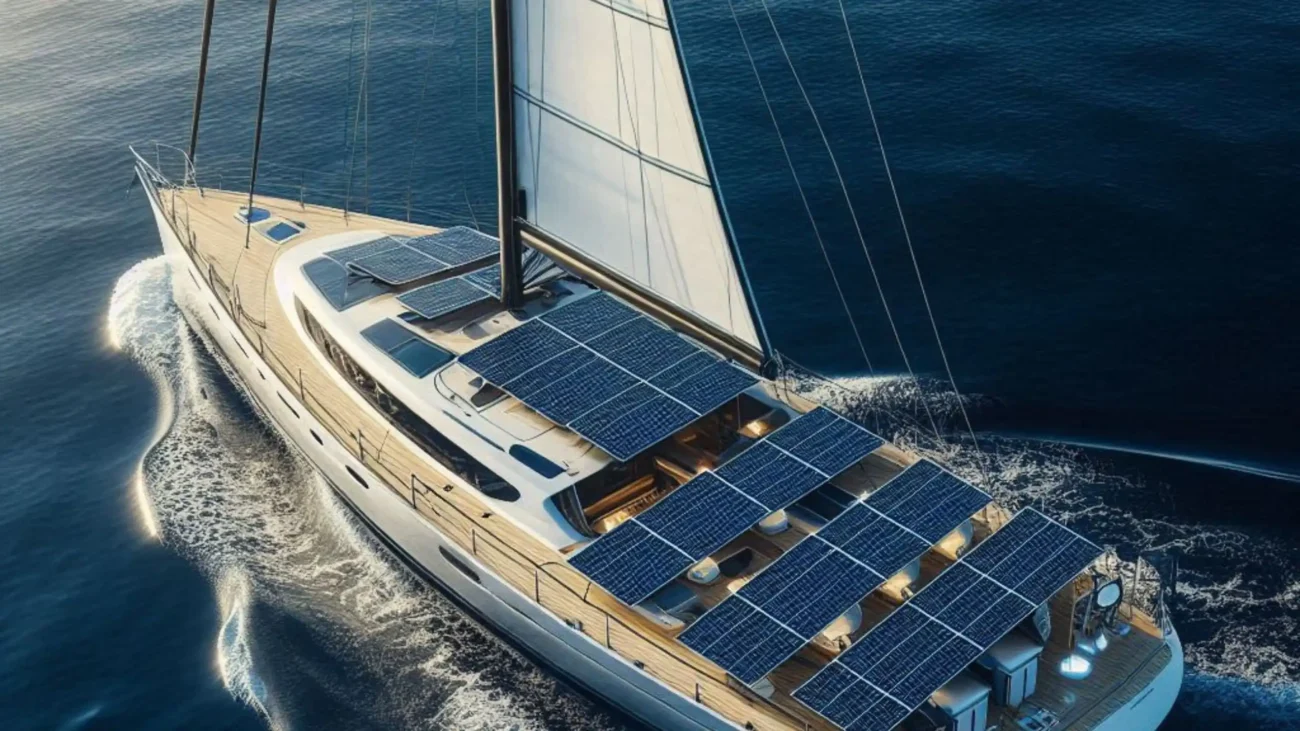
Enhancing Your Boat’s Solar System
1. Battery Bank
The efficiency of your solar power system depends significantly on your battery bank. Choose deep-cycle batteries that are designed to handle repeated charging and discharging. Lithium-ion batteries are becoming increasingly popular due to their longer lifespan and higher efficiency compared to traditional lead-acid batteries.
2. Inverters
To power AC appliances, an inverter is required to convert the DC power stored in your batteries to AC power. Select an inverter that matches your power requirements and has a good efficiency rating to minimize energy loss. Gadget For Travelers
3. Hybrid Systems
Consider integrating a hybrid power system that combines solar power with wind or hydro generators. This can provide a more consistent and reliable power supply, especially during periods of low sunlight.
Conclusion
Solar Panels for Your Boat offer a sustainable, cost-effective, and independent power solution for boat owners. By understanding the types of solar panels available, the installation process, and the necessary maintenance, you can make the most of solar energy on your boat. Investing in a well-designed solar power system will not only enhance your boating experience but also contribute to a greener planet.
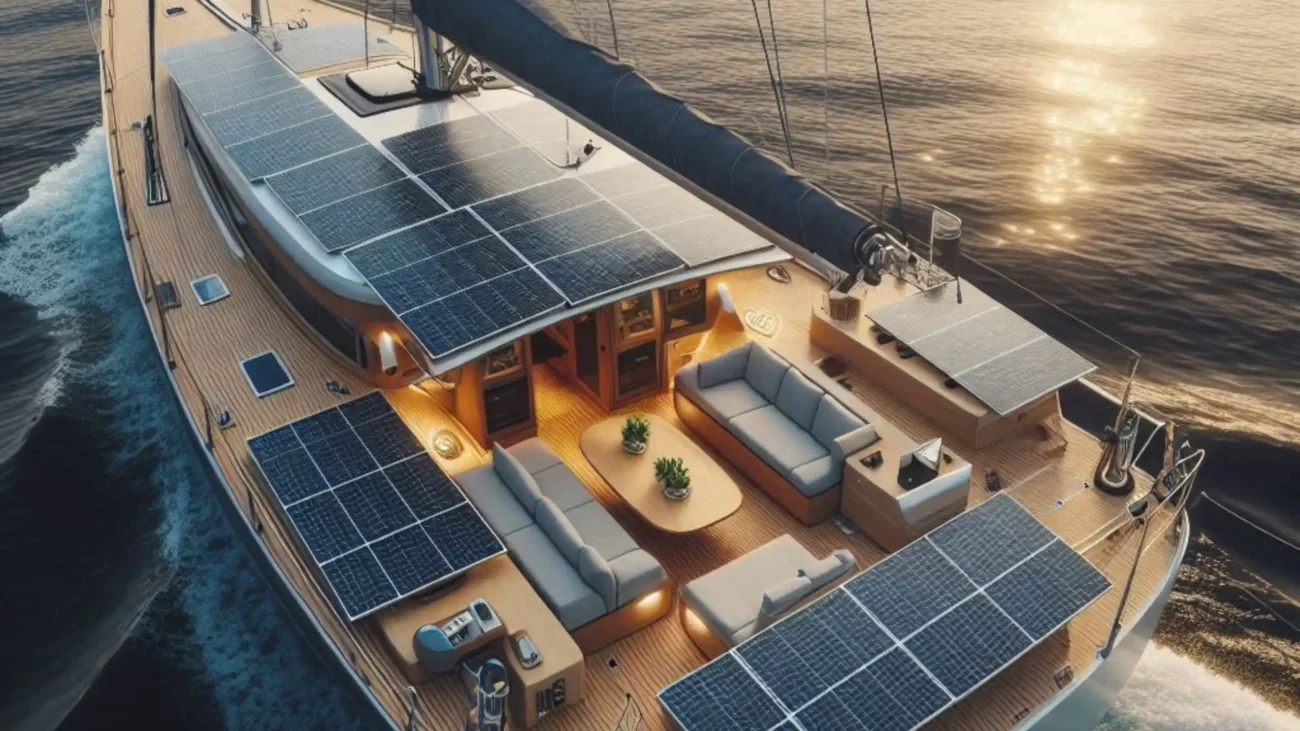
FAQs: Solar Panels for Boats
What are the benefits of installing solar panels on a boat?
Benefits of Installing Solar Panels on a Boat:
Sustainable Energy: Provides a renewable and eco-friendly power source.
Cost Efficiency: Reduces long-term energy costs.
Independence: Allows for extended trips without reliance on shore power or fuel.
Low Maintenance: Minimal upkeep with regular cleaning and inspection.
Which type of solar panel is best for boats?
Best Type of Solar Panel for Boats:
Monocrystalline Panels: High efficiency and durability, ideal for limited spaces.
Polycrystalline Panels: Good efficiency, cost-effective for larger boats.
Thin-Film Panels: Flexible and lightweight, suitable for various surfaces.
How do I determine the number of solar panels needed for my boat?
To determine the number of solar panels needed for your boat:
Calculate Total Energy Consumption: Sum the wattage of all onboard devices.
Assess Daily Usage: Estimate daily energy usage in watt-hours.
Panel Output: Divide daily energy needs by the output of one panel, considering sunlight hours and panel efficiency.
Where should I install solar panels on my boat?
Optimal Locations for Solar Panels on Boats:
Deck: Maximum sun exposure, minimal shading.
Cabin Roof: Elevated position, avoids most obstructions.
Bimini Tops: Flexible mounting, good sun angle.
Railings: Additional surface, avoid shadowing by other structures.
What maintenance do solar panels on boats require?
Regular Cleaning: Use fresh water and a soft brush to remove salt, grime, and debris.
Inspect Connections: Check for corrosion and ensure all electrical connections are secure.
Monitor Performance: Use a solar performance monitoring system to track output and identify issues early.
Can solar panels charge my boat’s batteries?
Yes, solar panels can charge your boat’s batteries. Connect the panels to a charge controller to regulate voltage and prevent overcharging. The charge controller then connects to the battery bank, storing the generated energy for later use. This setup ensures efficient and safe battery charging.
What kind of batteries should I use with my boat’s solar power system?
For a boat’s solar power system, use deep-cycle batteries. Lithium-ion batteries are highly recommended due to their long lifespan and high efficiency. AGM and Gel batteries are also suitable, offering good performance and reliability. Choose batteries designed for repeated charging and discharging to ensure optimal energy storage.
Do I need an inverter for my boat’s solar power system?
Yes, you need an inverter for your boat’s solar power system if you plan to power AC appliances. The inverter converts the DC power stored in your batteries to AC power. Choose an inverter that matches your power requirements and has high efficiency to minimize energy loss.
Are there hybrid power systems available for boats?
Yes, hybrid power systems combining solar, wind, or hydro generators are available for boats. These systems offer a reliable and sustainable power solution, combining different renewable energy sources to ensure continuous electricity supply, even during periods of low solar exposure. They are increasingly popular for enhancing energy efficiency and reducing reliance on traditional fuel-powered generators.
How much do solar panels for boats cost?
The cost of solar panels for boats varies based on type and installation complexity. Generally, prices range from $200 to $1,000 per panel. Additional costs include mounting hardware, wiring, and installation fees, which can total between $1,000 to $10,000 depending on the size of the system and professional installation requirements.
Can I install solar panels on my boat myself?
Yes, it is possible to install solar panels on your boat yourself, but it’s recommended to consult with a professional for safety and optimal performance. DIY installation requires understanding electrical wiring, mounting techniques, and ensuring panels are secured properly to withstand marine conditions. Professional guidance can ensure the system is installed correctly and efficiently.
How long do solar panels for boats last?
Solar panels for boats typically last 25 years or more with proper maintenance. Over time, their efficiency may slightly decrease, but they remain a reliable source of power for extended periods, making them a durable investment for marine environments. Regular cleaning and maintenance help to maximize their lifespan and efficiency.
